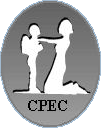ONE UNION'S WAR AGAINST CHOICE
The blocking campaign was so successful, says Arno, that when he once ran into one of his petitioners at K-Mart, the man didn't even dare to have the voucher petition out on the table with all the others. "Are you carrying it?" asked Arno. The man looked around and nervously pulled it out of his briefcase. "Sign it quick," he said, explaining that the activists harassed him so much when he left it out on the table that he couldn't make a living.The Secretary of State had suggested that all petition gatherers wrap up their signature gathering campaigns by April 17. And the CTA, assuming its strategy had been successful, dismantled its blocking operation. In the meantime, because voucher proponents still needed several hundred thousand signatures to qualify for the ballot, they continued to work for another three weeks gathering a total of 927,000 signatures (617,000 were needed to qualify). Without the teachers obstructing them in the field, Del Weber ruefully commented, "the pushers had a field day."
EVEN SO, once the signature gathering phase ended, voucher proponents were in for a rude shock. In San Diego, says Arno, an attempt was made to sabotage the petition drive. Thirty-two people signed the petitions 10 times or more. Many more signed seven, eight, or nine times. When the San Diego County registrar of voters did her sample count, the formula she used for disqualifying invalid signatures caused so many valid ones to be discounted that the initiative failed to qualify for the November 1992 ballot.
Initiative backers were furious, as was the registrar of voters for San Diego County, Conny McCormack who, calling the situation an "unprecedented case of intentional fraud," sent a letter to the San Diego County district attorney's office. Five months later, District Attorney Edwin Miller Jr. mailed back a report, saying his office had found no evidence to support allegations of a conspiracy on the part of voucher opponents and suggesting instead that the signature gatherers might have been less than "scrupulous" about asking people to sign.
Although a subsequent full count showed that the initiative had indeed qualified for the next election, initiative backers are still fuming about what they regard as the cavalier attitude displayed by the San Diego district attorney. The only investigation the DA did, says "Yes on 174" spokesman Kevin Teasley, was ask people who had signed multiple times if they had done it intentionally. If they said no, that was it, end of investigation. They never called the initiative backers, American Petition Consultants President Mike Arno, the CTA, or the Wall Street Journal reporter who wrote a story saying he had talked to people who admitted trying to invalidate the count. "Whom did they investigate?" asks Teasley.
At the same time that activists were attempting to prevent people from signing petitions, teachers were engaging in small scale guerrilla actions all over the state. In the Tustin Unified School District, school personnel were mimeographing anti-voucher fliers and sending them home with the children. In San Francisco, when one group of signature gatherers circulated petitions outside a church (with the minister's permission), one woman became so angry, says Mike Arno, she tried to "duke it out" with the minister. "We filed suits against seven school districts because they were sending students home with [anti-voucher] leaflets stapled to their homework," says Alibrandi.



